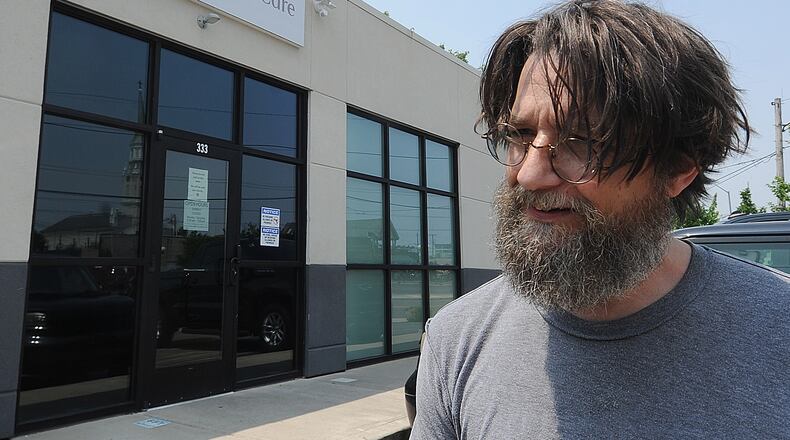According to the Ohio Division of Cannabis Control, as of Feb. 3, the state’s adult-use program has exceeded $300 million in total non-medical sales.
State Sen. Steve Huffman, R-Tipp City, recently proposed a bill that would increase the state’s 10% excise tax on all non-medical cannabis sales to 15%. Senate Bill 56 would also limit the number of home-grown cannabis plants a household could legally maintain, bringing down the total of 12 plants for a home with two adults to six plants total per household.
As a part of his state budget proposal, Ohio Gov. Mike DeWine has suggested doubling the state’s excise tax to 20%.
“There’s funding for county jails, there’s funding for police training, there’s funding for the 988 line, there’s funding for mental health, there’s funding for health,” said Kimberly Murnieks, DeWine’s Office of Budget Management director who worked closely with the governor to put the package together.
The Dayton region is home to more than a dozen dispensaries that are licensed to sell recreational cannabis.
Officials at the Cannabist Company, which operates the Columbia Care dispensaries in Monroe and Dayton, said a jump in excise tax may drive away lawful consumers.
“The Cannabist Company urges Ohio lawmakers to rethink the proposed excise tax hike on adult-use cannabis sales, as the adult-use market is still in its infancy. Cost increases at this early-stage risks pushing adult-use customers back towards the illicit and unregulated market,” the company said in a statement to this news outlet.
Other cannabis industry leaders, like Pure Ohio Wellness Chief Operating Officer Tracey McMillin, said a significant uptick in excise tax may also drive consumers to spend their money in neighboring states with lower tax rates or even seek the intoxicating hemp market.
“I think it’s super disappointing that they don’t pass this through the way the bill was written and voted on,” she said. “This program generates a tremendous amount of revenue for this state and its communities. It’s absurd to me why they want to punish the customer.”
Huffman said his bill is the resurrection of a bipartisan Senate package that didn’t make it across the finish line in the previous Ohio General Assembly. The Republican lawmaker said other features of the bill, like advertising restrictions and bans on public smoking, are intended to protect young Ohioans.
“There’s a lot of provisions to protect the public and the children, but in no way does it get away (from) what the people have voted for,” Huffman said.
S.B. 56 would make major changes to the state’s approach to dividing tax revenue from cannabis sales.
Under current law, towns that permit dispensaries to operate within their borders receive 36% of the recreational cannabis tax fund. Taxes also go toward a social equity fund, a substance abuse and addiction fund and more.
Huffman’s bill proposes directing revenue to the state’s general fund, but he expects the Senate to identify specialized areas that could benefit from the tax funds, like mental health supports, county jails and more.
“During this committee process, the Senate is going to decide what buckets we’re going to split that up in. I believe we’ll send it over to the House, they’re going to have some ideas, maybe they have similar maybe they don’t,” Huffman said.
McMillin said she doesn’t want to see cities and townships that permit recreational sale within their borders miss out on tax revenue.
“That’s a huge part of why municipalities have agreed to allow cannabis sales in their area,” she said.
Other lawmakers think the tax rate established in the citizen-initiated statute should be considered in policy changes.
“Look, these are substantial increases on what those taxes are,” said Ohio House finance chair Rep. Brian Stewart, R-Ashville. “Ohioans voted for a 10% tax, I think that needs to be factored in as we’re talking about what the rate should be.”


